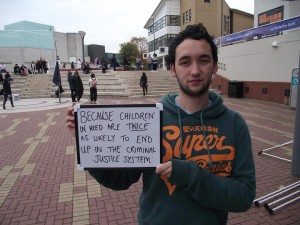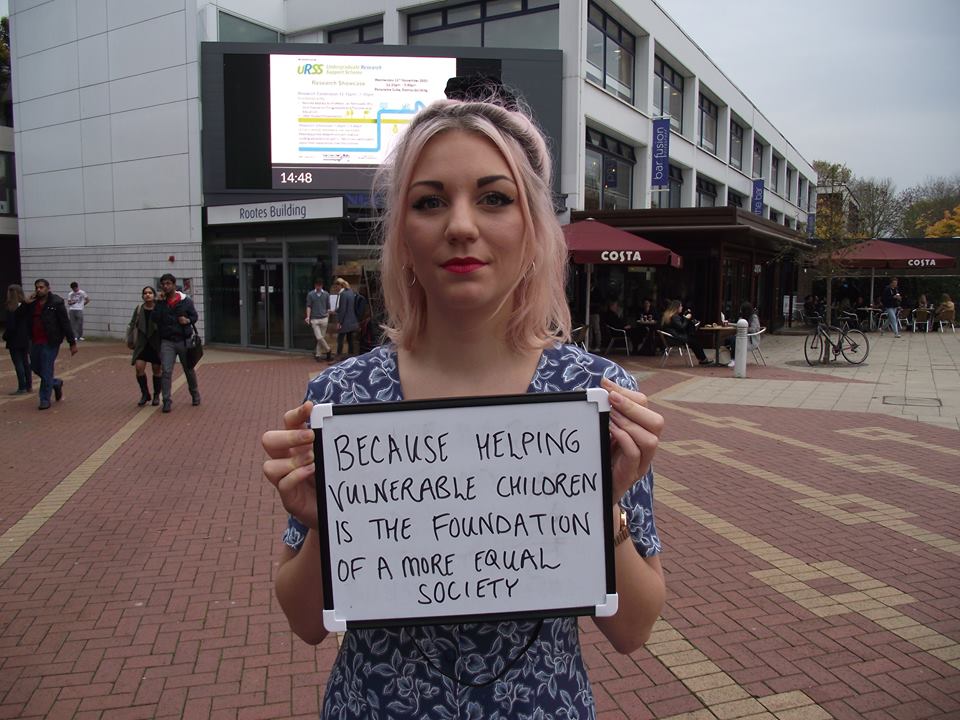Social Work: your new perfect career?
As 6% of care leavers go to uni compared to 38% of all young people, Fi Smart asks what social work can do
Social work has been getting bad press for years. What started as a prestigious career in the early 70s, gradually received less funding, less interest, and the exhausted service lost much of its prior reputation. I saw this when talking to students at Warwick – a surprising number didn’t even know what social work actually meant.
Social work is beginning to be presented as a viable and exciting career option
Put simply, social work is about working with vulnerable individuals to improve their life standards and outcomes. Yet the social work field is under huge pressure due to its high vacancy rates. Until recently, there simply has not been enough experienced, well-qualified, and suitably-skilled social workers for employers to recruit.
There’s no student here who hasn’t been talked at and financially enticed by E-on, Deloitte, or PwC. Even our bikes are being used to try and recruit us.
Now, social work is starting to be presented as a viable and exciting career option with graduate scheme, ‘Frontline’, which is recruiting our top graduates to become social workers.
The chief executive, Josh MacAlister, talked to the Boar about his experiences discussing the scheme on campus: “In careers advice, social work is not often considered. However, when we explain on campus what social work involves, the prospect of the job gets people excited. This is particularly because the career offers such a wide variety of active tasks. Overall, it is truly an exciting prospect with social purpose.”
 A few years ago, it was reported that children in care were twice as likely to get drawn into the criminal justice system (Nacro 2011) and, in 2012, 1,900 children in care were identified to have a substance abuse problem (UK Gov 2012). One aim of social work now is to provide quality counselling and legal support to these children.
A few years ago, it was reported that children in care were twice as likely to get drawn into the criminal justice system (Nacro 2011) and, in 2012, 1,900 children in care were identified to have a substance abuse problem (UK Gov 2012). One aim of social work now is to provide quality counselling and legal support to these children.
As mentioned, where 6% of care leavers go to university compared to 38% of all young people, the privilege many of us have of going to University is in stark contrast to those who have been in care.
Children in care are twice as likely to get drawn into the criminal justice system
For Early Childhood Education third-year Emma Taylor, these figures simply aren’t fair. She said: “If a child ends up in difficult and unfortunate circumstances, it’s incredibly important to have social workers provide the inspiration, guidance and life-changing support they so sorely need.”
 For two years running, Frontline has not only entered the Times Top 100 Graduate Employers, but has risen 33 places in the last year to number 40. It is leading the way to make social work a viable, respectable, and valuable career choice once again.
For two years running, Frontline has not only entered the Times Top 100 Graduate Employers, but has risen 33 places in the last year to number 40. It is leading the way to make social work a viable, respectable, and valuable career choice once again.
The graduate scheme is a paid two-year course, where students earn a postgraduate in their first year and a masters in their second. It’s advertised as preparing students for both a career in social work, and a career outside of social work if they choose. A newly qualified social worker can start their career with a £27,000 salary in some areas.
Careers also look promising if choosing to move from Frontline to fields outside of social work. Those who have been on the scheme in the past have been headhunted, or given special consideration, by the Civil Service, therapist training schemes, the NHS, and charities like NSPCC. Even big companies like Deloitte are making use of students who show courage, intelligence, and ethics in their graduate scheme choice.
Now in its third year, Frontline is pioneering social work’s ambitious, but essential renovation, by recruiting Warwick students.

Comments